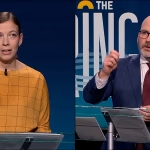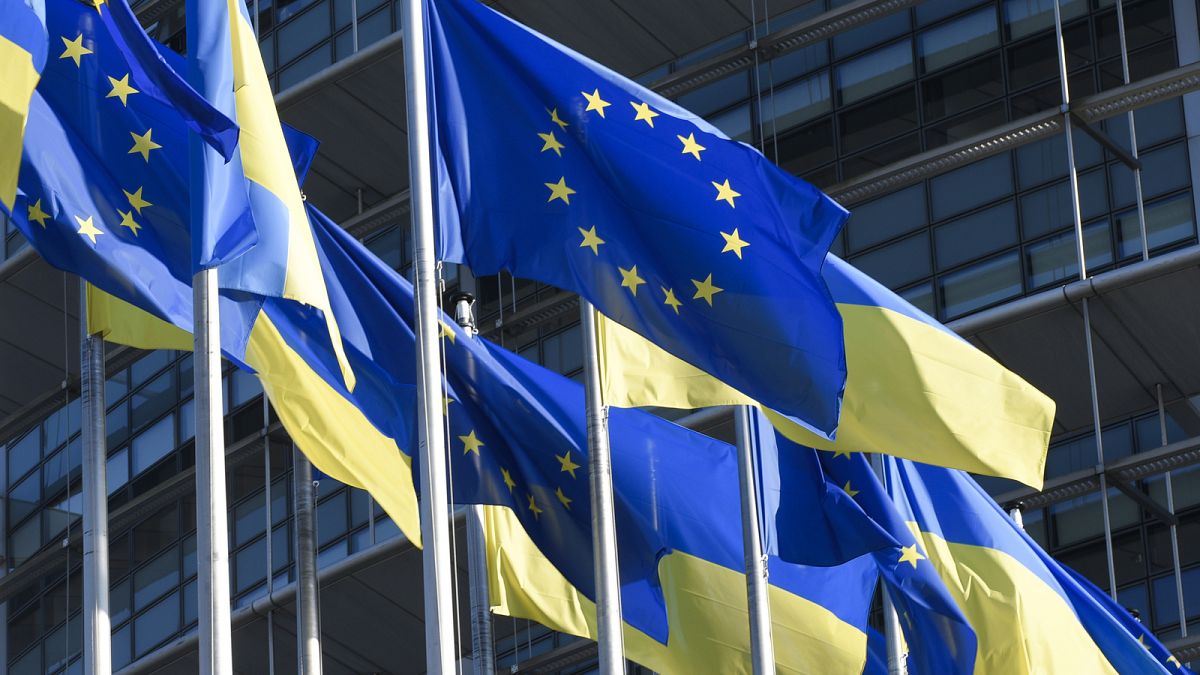The newly-elected European Parliament is set to reinforce its support for Ukraine with a resolution that reaffirms the bloc’s commitment to backing Kyiv. This move is seen as a response to the growing influence of far-right factions in the European Parliament, which some fear may undermine the EU’s support for Ukraine. The resolution, which has no legal weight, emphasizes the parliament’s dedication to Ukraine’s success and is expected to receive strong support during the upcoming plenary session.
Despite the increase in far-right representation in the European Parliament following the June elections, centrist, pro-European parties have formed a majority coalition to support Ukraine. The far-right factions, including the Patriots of Europe group, have re-aligned in an attempt to exert influence in the parliament. However, the resolution supporting Ukraine may pose a challenge for some of these parties, such as Hungary’s Fidesz, which recently faced criticism for Prime Minister Viktor Orbán’s controversial visit to Moscow during Hungary’s EU Council presidency.
The resolution condemning Orbán’s visit to Moscow is also aimed at reaffirming solidarity with Ukraine amidst concerns about shifting geopolitical dynamics. The potential return of Donald Trump to the White House following the US presidential election is seen as a threat to Western aid to Kyiv, with Orbán aligning himself with Trump’s messages in Europe. Centrist groups in the European Parliament are taking steps to marginalize far-right factions, such as the Patriots and the Europe of Sovereign Nations group, which includes parties sympathetic to Russia, from key leadership positions in the parliament.
The draft resolution underscores the importance of continued EU support for Ukraine in the face of external challenges and potential threats to Western aid. The parliament’s president, Roberta Metsola, highlighted the strong backing for the resolution within the new parliament and emphasized the need for sustained support for Ukraine. The resolution is expected to address concerns about the influence of far-right parties on EU policy towards Ukraine and to reaffirm the EU’s commitment to upholding Ukraine’s sovereignty and security.
Overall, the European Parliament’s resolution on Ukraine reflects the ongoing debate within the bloc about the future of EU support for Kyiv and the implications of shifting political dynamics in Europe. The resolution is a clear indication of the parliament’s commitment to upholding Ukraine’s sovereignty and security, despite concerns about the influence of far-right factions within the hemicycle. With tensions over Hungary’s presidency of the EU Council and Orbán’s visit to Moscow, the resolution serves as a statement of solidarity with Ukraine and a reaffirmation of the EU’s unwavering support for Kyiv in the face of external challenges.









